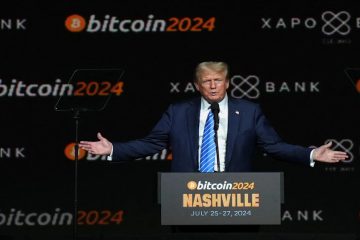Berkshire & Coca-Cola: A Situation Handled Well
Over the past few days, I’ve been rereading Roger Lowenstein’s “Buffett: The Making of an American Capitalist”. I’ve read the book before, though it has been years since I’ve last picked it up; in the meantime, I’ve somehow managed to forget that Lowenstein is a truly fantastic writer. My personal opinion is that his book is the best written about Warren and Berkshire to date.
One thing that’s important to remember is when this book was written: Mr. Lowenstein started working on the book in 1991 during the rescue of Salomon Brothers, with the first edition being published on January 1st, 1995. At the time, Berkshire Hathaway “A” shares (BRK.A, BRK.B) were trading around $ 20,000 – compared to more than $ 190,000 as of Friday’s close. The 49% of GEICO that Berkshire didn’t already own would be acquired eight months later, for $ 2.3 billion. At the time, GEICO was the nation’s sixth largest private passenger auto insurer; today, they’re second.
Speaking of GEICO, Mr. Lowenstein’s reconstruction of the company’s near collapse and Berkshire’s investment in 1976 is a must read; not to spoil the story if you’re not familiar with it, but suffice it to say that things ended up working out: just six months after Warren had purchased more than $ 4 million of common and nearly $ 20 million in preferred, the stock had quadrupled.
When discussing that period, Mr. Lowenstein quotes GEICO’s CEO, Jack Byrne; what he said about Warren is what I would like to discuss in this article (bold added):
“I’d ask him all kinds of things. He showed me sensible ways to finance. He was generous with his time. But he never – ever – made suggestions. Warren figured out a long time ago that he could make a lot more money for Berkshire by being a benevolent shareholder. This guy made a lot of money by backing up the truck.”
Mr. Lowenstein offers an example: “In an era when managers were increasingly under the gun to raise their stock or face a takeover, Buffett wanted Byrne to manage for the long term, and emphasized that he wouldn’t sell him out [both privately and in Berkshire’s public reports].”
In the story, Warren’s actions are revealing: he spent hours talking with Byrne before he was willing to invest in GEICO, peppering him with questions until three in the morning (and he knew plenty about the company from his prior investment in the 1950’s) – but once he decided to invest, the questions stopped; Warren got out of the way and left Byrne to make the decisions.
This went so far as when a Fortune 500 company made a bid to acquire GEICO, with Warren leaving the decision making entirely up to Byrne – even the price of the sale: “It was amazing. We were talking about a billion dollars or so. He left it in my hands.” It’s unclear when these events occurred, but consider that Berkshire owned nearly one-third of GEICO by 1981; it’s likely that Warren owned a significant stake in GEICO during the negotiations, meaning that the sale price was far from a trivial matter – yet he still left Byrne to make the decisions.
That playbook is similar to what’s discussed elsewhere in the book – for example, Buffett’s investment in The Washington Post: after acquiring a 10% stake in the company in 1973 (at pries Warren would later claim were less than twenty-five cents on the dollar), he wrote a letter to a skeptical Kay Graham – and sensing her worry at an initial meeting, offered to stop accumulating stock to appease her. Shortly thereafter, Warren signed his proxy over to Kay’s son, Don (now Graham Holding’s CEO; GHC), relinquishing his right to vote a sizable stake in the company.
Now, one could make an argument that this act didn’t matter either way: the Graham family controlled the voting stock, meaning that Warren’s minority stake couldn’t effect change; even excluding the founder’s shares, Warren’s position size still left a long way to go for pulling the majority on any vote. I don’t complete disagree with that thought process – and if you’re thinking that way, do me a favor and keep that in the back of your mind for a second.
Even going back many decades, we continually see Warren and Charlie act in this manner: staying hands-off and letting managers run their business (and only stepping in when a serious problem arises), while working hard to maintain their mutual respect and liking. Those same parties have used Warren as a sounding board – and listen closely when he has something to say. That formula has been critical to Berkshire Hathaway’s wholly-owned businesses; it applies to their publicly traded holdings as well.
That brings us to the Coca-Cola (KO) equity compensation plan vote. It’s interesting to rehash, in hindsight, how the math actually worked out: nearly 2.2 billion shares were cast in favor of the plan, or more than 83% of all the yes / no votes (not including those that abstained); if the 407 million shares that abstained (400 million from Berkshire) had instead voted “no”, the votes cast “for” still would’ve outnumbered the votes cast “against” by more than two-to-one.
Much like at the Washington Post, Warren could have voted against the plan and created a fuss – but that alone was unlikely to lead to the desired outcome. The idea that Berkshire can effect change through the proxy statement isn’t ludicrous – but on its own it appears ineffective, particularly if you don’t want to paint this one issue with a broad brush that reflects on management as a whole. If voting and then keeping quiet doesn’t seem like a great option, how about voting no and speaking up? Better yet, what if speaking alone is an effective alternative?
Ultimately, that’s what happened: Warren abstained on the vote, but didn’t refrain from publicly calling the plan “excessive”. He made it explicitly clear that he disapproved of the plan without making a similar statement about management; as a PepsiCo (PEP) shareholder, I personally think that recent business results agree with that conclusion: Coca-Cola’s management has done a good job, at least in comparison to their primary competitor, over the past five-plus years (you can find quantitative backing for this conclusion from Beverage Digest data).
Warren’s commentary from the Berkshire Hathaway annual meeting provides further detail:
“I did talk to Muhtar Kent, and I told him that we would abstain. I told him I admired the company, but the compensation was excessive. Immediately after, we announced we had abstained and explained why. I think that is the most effective way of behaving for Berkshire. We made a very clear statement about the excessiveness of the plan, but without going to war with Coca-Cola. And, we didn’t endorse inaccurate calculations, or join forces with someone that I hadn’t interacted with. If you’re going to war, you want to know what that alliance might be. I think the best outcome was achieved by our abstention.”
Charlie, as usual, was straight to the point: “I think you handled the whole situation very well.”
I tend to agree. I think we will ultimately see Coca-Cola extend the timeline of the plan beyond four years; Berkshire and investors like David Winters (Trades, Portfolio) will get what they want despite losing the vote – a vote that would’ve been lost by a wide margin (as the numbers were reported) even with Berkshire’s backing. The benefits are likely to be achieved without going to war with Coca-Cola.
Time will tell whether or not I’m correct about this.
I know many people vehemently disagree with this conclusion: they believe that Warren should’ve acted differently; he has said one thing, only to do another when given the chance to make a stand. Reasonable people can disagree on the merits of placing a vote as opposed to publicly and personally making one’s opinion know (or doing both); I would argue that the latter on its own carries just as much weight when you’re the most revered investor in the world. That reverence, by the way, has been earned over decades by actions like those discussed above.
I think a study of Warren Buffett (Trades, Portfolio)’s history as a large shareholder undoubtedly points to this scenario playing out as it has subsequently occurred; Warren realized a long time ago that influence gained through endowing individuals with trust and earning their mutual respect is likely to be much more powerful than that garnered via a proxy statement.
As a Berkshire shareholder, I agree with Charlie – I think the situation was handled very well.




